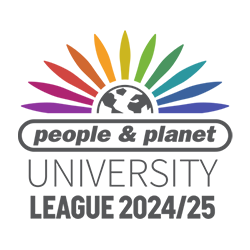-
Study
-
Undergraduate
- Search for a Course
- Undergraduate Open Day & Events
- Application Guides
- Northumbria University UCAS Exhibitions
- Foundation Years
- Undergraduate Fees & Funding
- School & College Outreach
- Continuing Professional Development
-
Postgraduate
- Postgraduate Study Degree
- Postgraduate Research Degrees
- Postgraduate Open Days and Events
- Postgraduate Fees & Funding
- Flexible Learning
- Thinking about a Masters?
- Continuing Professional Development
- Change Direction
-
Student Life
- The Hub - Student Blog
- Accommodation
- Life in Newcastle
- Support for Students
- Careers
- Information for Parents
- Students' Union
- Northumbria Sport
- Be Part of It
-
-
International
International
Northumbria’s global footprint touches every continent across the world, through our global partnerships across 17 institutions in 10 countries, to our 277,000 strong alumni community and 150 recruitment partners – we prepare our students for the challenges of tomorrow. Discover more about how to join Northumbria’s global family or our partnerships.
View our Global Footprint-
Applying to Northumbria
- European Union
- Our London Campus
- Northumbria Pathway
- International Events
- Entry Requirement and Education Country Agents
- Global Offices
-
Northumbria Language Centre
- Faculty Requirements
- Acceptable English Requirements
- Pre-sessional English Language and Study Skills
- Academic Language Skills Programmes (ALS)
-
International Fees, Funding & Scholarships
- International Undergraduate Fees
- International Undergraduate Funding
- International Masters Fees
- International Masters Funding
- International Postgraduate Research Fees
- International Postgraduate Research Funding
- International Money Matters
-
Life at Northumbria
- International student support
- Careers
-
International Mobility
- Current Northumbria Students
- Incoming Exchange Students
-
-
Business
Business
The world is changing faster than ever before. The future is there to be won by organisations who find ways to turn today's possibilities into tomorrows competitive edge. In a connected world, collaboration can be the key to success.
More on our Business Services -
Research
Research
Northumbria is a research-rich, business-focused, professional university with a global reputation for academic quality. We conduct ground-breaking research that is responsive to the science & technology, health & well being, economic and social and arts & cultural needs for the communities
Discover more about our Research -
About Us
-
About Northumbria
- Our Strategy
- Our Staff
- Place and Partnerships
- Student Profiles
- Alumni Profiles
- Leadership & Governance
- Academic Departments
- University Services
- History of Northumbria
- Contact us
- Online Shop
-
-
Alumni
Alumni
Northumbria University is renowned for the calibre of its business-ready graduates. Our alumni network has over 246,000 graduates based in 178 countries worldwide in a range of sectors, our alumni are making a real impact on the world.
Our Alumni - Work For Us
What will I learn on this module?
The content of Applied Life Sciences will be informed by the proficiency standards outlined in Annex A and B in ‘Future Nurse: standards of proficiency for registered nurse’ (NMC, 2018; 2023).
This module will introduce the concept of safe nursing practice, effective communication, medicine management, and the proficiencies of physical assessment. This module will be taught across the year aligned to your learning within LE7002 and LE7003 bringing together theory and practice to facilitate your development as a safe and effective practitioner. You will learn how to observe and assess people of all ages in terms of symptoms and signs of physical ill health. You will learn how to take, record and interpret a patient’s vital sign and use communication tools to support verbal and written reports. An introduction to basic medicine calculation and management will also be part of your learning. You will consider and develop fundamental nursing skills to act in a holistic, individualised, non-judgemental, and honest way, with integrity, and apply principles of The Code (NMC, 2018). Prior to your first placement, you will complete a number of mandatory requirements, which will enable you to practice with confidence and to protect your patients. These mandatory requirements will include moving and handling (M&H), basic life support (BLS), and de-escalation technique.
These skills and proficiencies will be supported by opportunities to participate in a variety of a blended approach of face-to-face practical sessions in simulated education taught by experts utilising a range of specialist technologies such as human patient simulators and immersive interactive environments underpinned by online learning and digital resources contained within the BlackBoard Ultra site. These dynamic learning opportunities will support you to develop knowledge and help you gather evidence, which will inform your attainment of your Ongoing Record of Achievement (ORA).
How will I learn on this module?
In the module, you will be engaged in a variety of learning and teaching approaches. The module will be delivered using a blend of ELP- Blackboard ultra and face-to-face practical sessions, underpinned by online learning resources. The focus of learning will be on the rehearsal of nursing skills to build knowledge and proficiency and assist with making links between theory and practice.
You will learn through a variety of methods, which will include practice learning, Online Support Learning (OSL), and simulated practice environments within the University. Learning will be supplemented by websites and training packages, which will include access to the Department’s specialist Skills4Practice website: https://www.s4pwebsite.com/.
You will be encouraged to work collaboratively with peers to build your knowledge and understanding and will be provided with the opportunity to link with fellow students in other fields of nursing. This introduces you to the task-work component of teamwork and reflects the realities of delivering effective care for people of all ages in the community and all healthcare settings. We work with a model of peer-learning (Learning Leaders) from previous cohorts who will share their experiences and advice, assisting you through year 1.
How will I be supported academically on this module?
You will be supported by a module team of specialist nursing lecturers, who will provide ongoing guidance and feedback to ensure you are able to engage with concepts of safe nursing practice, the physical health, mental health and wellbeing status of people of all ages, and the academic rigour of the module.
You will also be supported via the modules’ Online Supported Learning (OSL) systems which compliment face-to-face teaching and more formal classroom arrangements.
Contact with the module team is available in person, via telephone, email and through Blackboard Ultra. Skills Plus (the university library’s collection of online learning materials) can be used to support the development of your academic skills. Further support for your learning is provided with a 24-hour IT Helpline and the student support and wellbeing service at Northumbria are excellent points of contact for assistance for queries regarding disability, faith, counselling, mental health support, finance and welfare issues. You can access these services via email on your student portal, by telephone or through the help desk staff based within university libraries.
You will also support each other via peer support, through engaging in discussion and debate to enhance your learning. Additional relevant materials will be available via BlackBoard Ultra. These will include the electronic reading list, PowerPoint presentations, recorded lectures and interactive learning packages. The university libraries at both Coach Lane Campus and City Campus offer an extensive collection of material, both hard copy and electronic, access to international databases and training in information retrieval.
All support will be in line with any Student Accessibility Plan (SAP) guidance.
What will I be expected to read on this module?
All modules at Northumbria include a range of reading materials that students are expected to engage with. Online reading lists (provided after enrolment) give you access to your reading material for your modules. The Library works in partnership with your module tutors to ensure you have access to the material that you need.
What will I be expected to achieve?
Knowledge & Understanding:
1. Critically analyse the fundamental principles and concepts underpinning effective communication skills and safe evidence-based person-centred nursing care.
Intellectual / Professional skills & abilities:
2. Demonstrate critical understanding of the foundations of professional communication and assessment skills to assess people of all ages accurately.
3. Critically apply evidence-based patient assessment skills and nursing interventions to assess people of all ages accurately and support them using safe and effective practice.
4. Demonstrate critical understanding of the principles of medicine management.
Personal Values Attributes (Global / Cultural awareness, Ethics, Curiosity) (PVA):
5. Demonstrate professionalism, integrity and an ability to work within recognised professional standards.
How will I be assessed?
Formative:
Formative assessment of numeracy (Script) will also be undertaken.
(MLO 1, 2, 3, 4 & 5)
Summative:
Summative assessment will be an online unseen examination, 120 minutes in duration. Questions will be a mixture of MCQ and short answer essay/scenario-based questions. This exam will be submitted electronically, will be invigilated and will be marked electronically, by the academic team.
(MLO 1, 2, 3 4 & 5)
Pre-requisite(s)
None
Co-requisite(s)
None
Module abstract
The content of Applied Life Sciences will be informed by the proficiency standards outlined in Annex A and B in ‘Future Nurse: standards of proficiency for registered nurse’ (NMC 2018). This skills-based module will initiate the development of your communication and nursing procedure skills, which are necessary for safe, effective, professional practice and give you the key skills for a successful career in nursing. Sessions will focus on a range of skills and nursing interventions that support your learning in practice. You will have the opportunities to participate in a variety of simulated education utilising a range of specialist technology including using human patient simulators within immersive interactive environments
As you progress through the module, you will learn how to critically reflect on your own performance and illustrate your development and growing confidence in your Ongoing Record of Achievement (ORA), demonstrating that you are capable of a high standard of competent, safe and independent nursing practice.
Course info
Credits 20
Level of Study Postgraduate
Mode of Study 2 years Full Time
Department Nursing, Midwifery & Health
Location Coach Lane Campus, Northumbria University
City Newcastle
All information is accurate at the time of sharing.
Full time Courses are primarily delivered via on-campus face to face learning but could include elements of online learning. Most courses run as planned and as promoted on our website and via our marketing materials, but if there are any substantial changes (as determined by the Competition and Markets Authority) to a course or there is the potential that course may be withdrawn, we will notify all affected applicants as soon as possible with advice and guidance regarding their options. It is also important to be aware that optional modules listed on course pages may be subject to change depending on uptake numbers each year.
Contact time is subject to increase or decrease in line with possible restrictions imposed by the government or the University in the interest of maintaining the health and safety and wellbeing of students, staff, and visitors if this is deemed necessary in future.
Useful Links
Find out about our distinctive approach at
www.northumbria.ac.uk/exp
Admissions Terms and Conditions
northumbria.ac.uk/terms
Fees and Funding
northumbria.ac.uk/fees
Admissions Policy
northumbria.ac.uk/adpolicy
Admissions Complaints Policy
northumbria.ac.uk/complaints











